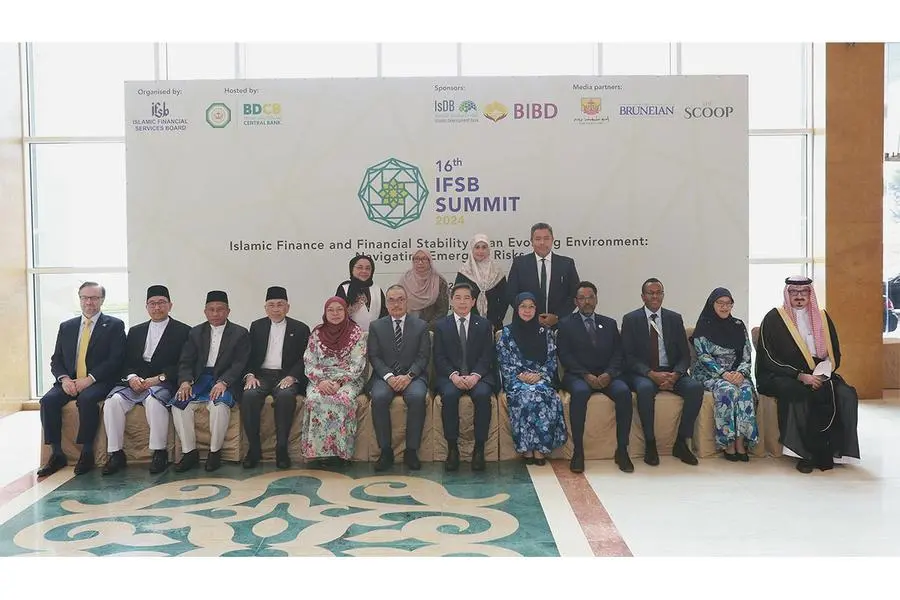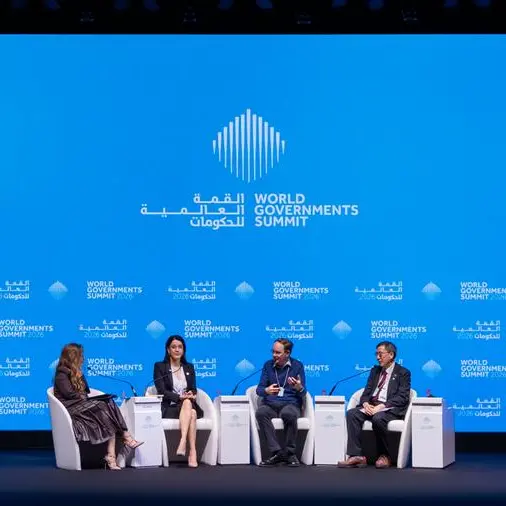PHOTO
Bandar Seri Begawan, BRUNEI DARUSSALAM – The Islamic Financial Services Board (IFSB), an international standard-setting body for the Islamic finance industry, concluded the 16th IFSB Summit today. Hosted by the Brunei Darussalam Central Bank (BDCB), the Summit brought together more than 200 high-level participants from over 20 countries, including regulators, policymakers, industry leaders, and representatives from inter-governmental institutions and academia.
With the theme ‘Islamic Finance and Financial Stability in an Evolving Environment: Navigating Emerging Risk’, the two-day Summit underlined some of the important global shifts and changing dynamics in the global environment, recognising both opportunities and new risks they present for the Islamic finance industry. The panel sessions invited the industry to evaluate the implications of these challenges on Islamic finance stability and resilience, with a focus on macroprudential policy and liquidity risk management.
The Summit featured prominent organisations such as central banks, international organisations and international Islamic finance community representatives from Bangladesh, Indonesia, Malaysia, Morocco, Saudi Arabia, Oman, Somalia and the Philippines, and market players. The participation of local and international organisations at the event exemplifies the joint efforts of policymakers, regulatory and supervisory authorities and Islamic financial institutions to address critical gaps, monitor cross-border risks, and foster stability in the Islamic financial services industry.
There were four panel sessions on the second day of the Summit, curated around the industry's adaptability and responsiveness to evolving conditions. Among the key takeaways includes;
- Collaborative efforts among stakeholders and market players: Furthering the Islamic finance agenda is a collective effort. It is critical for regulators, policymakers, and institutions, alongside guidance from international bodies including standard-setters like the IFSB, to shape actionable strategies and frameworks for the industry as it navigates the emerging conditions.
- Advancing digitalisation and innovation: Digitalisation is opening bigger doors for the Islamic finance market to diversify its offerings, providing market differentiation, where FinTech is perfect to bridge this opportunity with the growing market demands. While FinTech companies are racing to tap into this potential, the implementation front can be timely due to regulatory and policy challenges, which may deter FinTech players from investing in the industry.
- Improving financial literacy and access to Islamic finance: While technology remains a permanent fixture, focus must also be made on deepening financial literacy and increasing accessibility to Islamic financial instruments among the population. For this reason, innovations and product developments must prioritise affordability, ease of use, and grassroots-level extension.
- Role of regulators: As the industry continues to evolve in response to emerging trends, regulators and policymakers in each country must play an active role in fostering confidence in the industry, consumers, as well as investors who are looking into the economy. Collaboration with regulators and standard-setting organisations is imperative for the development of risk-hedging tools, underscoring the importance of collective efforts in shaping the future of Islamic finance.
In his closing remarks, Mr. Mardini Eddie, Assistant Managing Director (Monetary Operations), BDCB, reiterated the transformative power of embracing change and innovation towards bolstering sustainable, inclusive, stable and resilient growth in the Islamic financial services industry. He also emphasised the importance of collaboration and proactive strategies amidst global challenges and emerging risks for financial stability and prosperity.
The IFSB Summit serves as a platform for the international standard-setting body to facilitate dialogue on critical issues shaping the Islamic finance industry's resilience and policy implications of emerging risks. It continues to be a cornerstone for policymakers and stakeholders committed to advancing the Islamic finance industry.
For more info on the 16th IFSB Summit, visit www.ifsbsummit2024.com, and for similar events from the IFSB, visit www.ifsb.org.
About the Islamic Financial Services Board (IFSB)
The IFSB is an international standard-setting organisation that promotes and enhances the soundness and stability of the Islamic financial services industry by issuing global prudential standards and guiding principles for the industry, broadly defined to include banking, capital markets and insurance sectors. The IFSB also conducts research and coordinates initiatives on industry-related issues, as well as organises roundtables, seminars and conferences for regulators and industry stakeholders. Towards this end, the IFSB works closely with relevant international, regional and national organisations, research/educational institutions and market players.
The members of the IFSB comprise regulatory and supervisory authorities, international inter-governmental organisations and market players, professional firms and industry associations. For more information about the IFSB, please visit www.ifsb.org
About the IFSB Summit
2024 marks the 16th edition of the IFSB Summit. The international event serves as a vital platform for policymakers and stakeholders to deliberate on issues crucial to the resilience of the IFSI and the policy implications of emerging risks.
First held in 2004, in London under the name ‘Islamic Financial Services Industry and the Global Regulatory Environment Summit’, IFSB Summit has grown into a must-attend biennial event for the supervisory and regulatory bodies, global standard setters as well as financial institutions. Learn more about the 16th IFSB Summit at www.ifsbsummit2024.com.
About the Brunei Darussalam Central Bank (BDCB)
BDCB is committed to achieving and maintaining a sound and dynamic financial system through the implementation of measures and execution of financial sector reforms in line with the national economic development objectives. These include ensuring the stability of domestic prices, maintaining the stability of the financial system by formulating financial regulations and prudential standards, assisting in the establishment and functioning of efficient payment systems and subsequently overseeing them, and fostering and developing a sound and progressive financial services sector.
IFSB Media Contact:
Nor Atiqah/ Ammar Khairi
Tel: +603 9195 1420
Email: nor.atiqah@ifsb.org/ ifsb_sec@ifsb.org




















